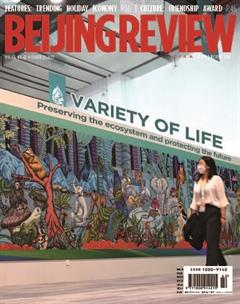Team Play Will Save the Day
By Zhong Cheng
The rise of emerging economies like Russia, Brazil and South Africa challenged the post-Cold War unipolar world order. As Chinas capacity and influence grow, many promising areas for cooperation are opening up, from trade to infrastructure, environment and development aid.
The development of China creates opportunities for partnerships in delivering public goods and sharing the burden of maintaining the global economic and security order. This in turn poses challenges to the traditional U.S. supremacy and leadership, especially if in the U.S. calculation such leadership cannot be shared.
The polarization of public opinion over U.S. rhetoric and policies, animosity between the White House and the mass media, executivelegislative bickering, and infighting even within the Democratic Party itself are intensifying. These domestic political challenges make it difficult for a distracted U.S. government to come up with a national development strategy, let alone comprehensive policies for key regions and flashpoints.
In the world arena, as the U.S. withdrew from the Trans-Pacific Partnership it championed under former President Barack Obama (2009-17), China-led and backed multilateral arrangements such as the Regional Comprehensive Economic Partnership and the Belt and Road Initiative are gaining momentum. Hence, reservation and suspicion between both sides persist and are unlikely to fade anytime soon.
The U.S. worries China may take its place. How could the U.S., which absolutely does not want to be in second place, accept a rising China? Driven by an outdated zero-sum mentality, certain factions in the U.S. believe in major-power rivalry in terms of ideology and politics, and stick to Cold War thinking. They perceive China as a major strategic competitor. Any action that will increase Chinas clout and influence relative to the U.S. will create discomfort and apprehension on the latter side, as well as increase tensions between the two countries.
Unilateral damaging actions
To a large extent, the anti-Chinese discourse in the U.S., which considers China a real enemy, is one of the most important obstacles in developing a bilateral relationship. The U.S. administration has chosen unilaterally to be provocative. It has undermined Chinas interests, putting the relationship in the most complex and grave of situations since the establishment of diplomatic ties in 1979.
Some U.S. politicians have insisted on making false statements and groundless accusations against China. They have attacked the Communist Party of China (CPC) and Chinas political system, de- liberately distorted the history of China-U.S. relations for the past 50 years since Dr. Henry A. Kissingers secret visit to China, challenged Chinas core interests, and interfered in Chinas internal affairs. They seemingly seek to disrupt China-U.S. exchanges in all areas and stall any cooperation momentum by restricting Chinese media outlets, shutting down Confucius Institutes and suppressing Chinese companies, stitching up stories to blind the American people and manipulate international public opinion.

